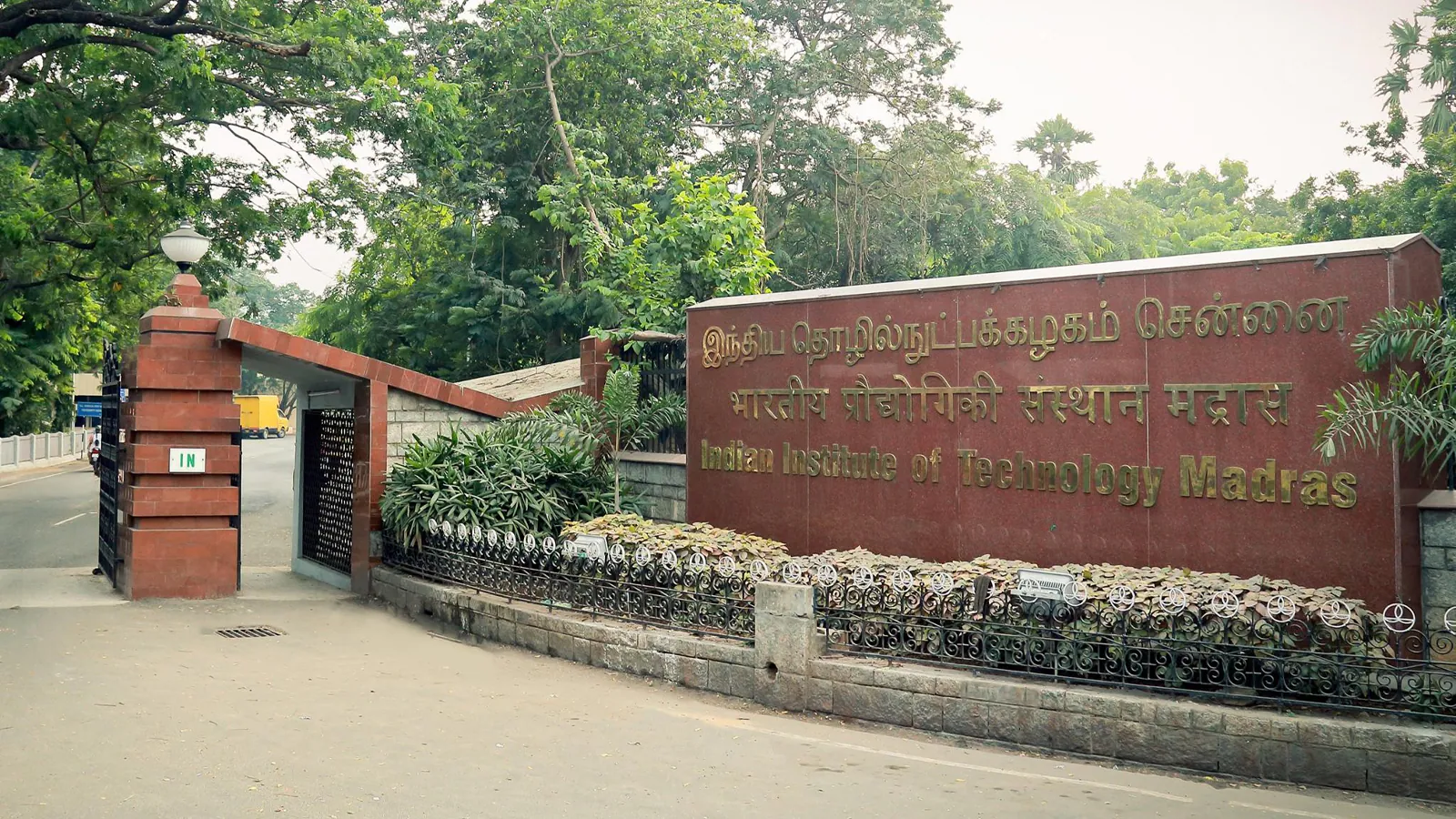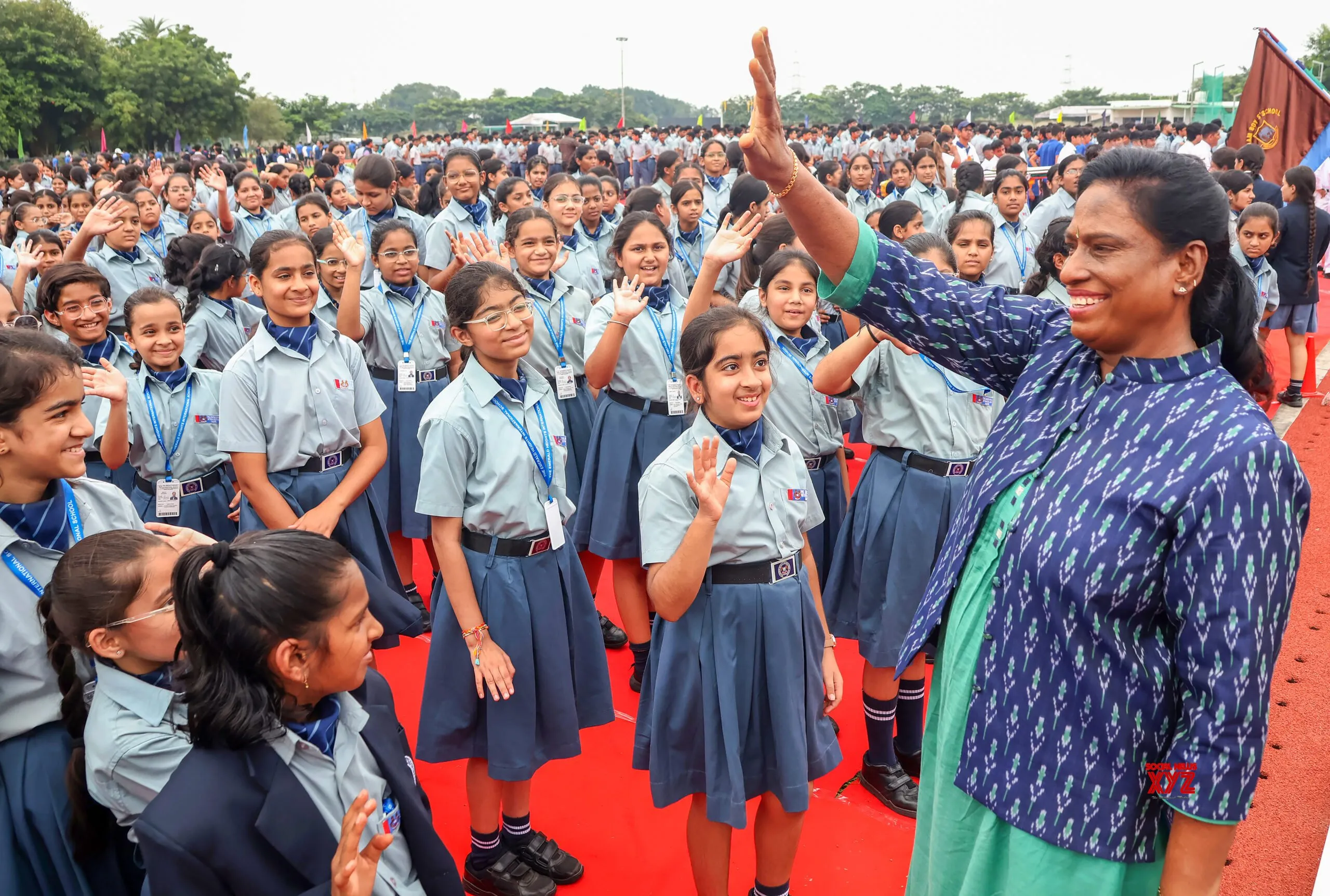By Harshil Mehta,News18
Copyright news18

One morning, this author received a flyer of the event ‘South Asian Capitalism(s)’ organised at the UC Berkeley and co-organised by the Indian Institute of Technology, Bombay. The flyer had a cartoon caricature that resembled a communist cartoon ‘Pyramid of Capitalist System’ but was customised for Indian context, with India’s current leaders.
Shocked by finding the misuse of taxpayers’ funds for such propaganda, this author posted it on X (formerly Twitter). The poster caused a controversy followed by the distance of the IIT Bombay from this event by releasing an official statement.
This event was sponsored by the New Political Economy Initiative (NPEI), headed by IIT Bombay’s Humanities faculty who is a British citizen. The initiative is a part of Centre for Liberal Education and has received a fund worth INR 35 crore from Ford Foundation. Still the output of the head, at least academically, has not been great. IIT Bombay’s official website displays very few research works in his profile and in fact no published works since 2023. NPEI’s one research paper uses Wikipedia as a citation, limited survey and news report as reliable sources to draw conclusions.
This is not just one isolated event where IITs are in bad focus. One faculty member of ADCPR, IIT Bombay gave a call for class war on social media platform X. The same professor has been working for five years but doesn’t have any first author research paper.
Another faculty member of ADCPR wrote in a magazine that Shrimad Bhagvad Gita teaches insider trading and his claims were debunked by this author and Ami Ganatra recently. IIT Gandhinagar has also been in news for having such faculties at the humanities departments. These faculties from humanities departments are not just activists on taxpayer’s funds but also inefficient and ineffective in their output. Due to such activities, the brand IIT suffers.
To understand the multilayer problem with humanities in IITs, we must ask the questions on the existence of IITs: Why were IITs established? Were they established to offer MA courses in social sciences and humanities? The answer is simple. IITs were supposed to be centers of excellence in engineering and technology. However, after the late policy changes and the race to chase the QS rankings, the IITs have started opening full-fledged courses in humanities, liberal studies, and policy studies departments. These departments do not teach engineering students but offer BA, MA, and PhD courses–but obviously, they have autonomy like engineering departments.
While autonomy to engineering departments is critical, the humanities departments take advantage of this. They can take funding from external sources (sometimes, even a foreign NGO) or associate themselves with controversial NGOs. For example, one professor at IIT Gandhinagar was associated with an NGO run by the Jesuit priests of Loyola. He used this NGO to do groundwork in the Narmada Valley’s tribal areas of Gujarat. In the latest case, NPEI has secured funding from Ford Foundation worth 35 crore INR to study the political economy of India. This research is similar to someone writing a research paper on the advantages of smoking using the funds of a cigarette company. That’s how neutral and objective ‘research’ would be! Nonetheless, science journals mandate researchers to disclose the funding but social science journals often do not.
The case of autonomy and the absence of a central hiring process also plays a critical role in (mis)governance of IITs. The faculty members, who are already on the board, refer the new hires with the similar ideologies, the similar regional background and turn the departments into the ideological silos. The faculty members who speak for gender, caste, and religious diversity never work to achieve ideological and geographical diversity.
Academia worldwide has a “two-body problem” in which a star faculty is hired and a role offered to his spouse so that the star faculty can stay with his family peacefully. Now, the problem here is not just limited to relatives’ hiring. The spouses, if qualified, can work in the same institute. The main issue here is the lack of policies and the question of conflict of interest in workplace dynamics. Influential–not necessarily qualified–faculties can benefit from such an absence of policies and can offer significant advantages to their spouses at the cost of IITs.
It has come to this author’s notice, through sources, that at least 14 couples (spouses, parents-children) work at one of the IITs in Western India and some of them are very powerful. Surprisingly, even after these many couples, the institute has neither conflict of interest policy nor spouse hiring policy available online. It is not in public knowledge if the institute asks any question of relatives or partners working at the same institute. At the same time, it is also not known if the administration is aware of the relations between their employees.
Indian academicians like to cite the examples of the Western universities to justify what they are doing. The western universities indeed hire relatives but they have a clear policy on what is allowed and what is not. The Massachusetts Institute of Technology has a policy called Employment of Members of the Same Family. This policy clearly states that “[i]n no case may one family member supervise the other, nor may one family member recommend, evaluate, advocate for, or make decisions with respect to the other family member’s conditions of employment, salary, or promotion.” University of Oxford and University of Cambridge have similar policies to avoid conflict of interest in the institutes.
The caricature episode should serve as a reminder of what is awaiting if the technological institutions decide to go humanities away. A politically charged environment, fuelled by political activities of humanities departments, will always attract clashes on campus, as seen during the anti-CAA protests. This, in turn, will not foster a culture of dialogue, as humanities professors like to claim, instead, it will erode the apolitical environment needed for research and innovation.
This is a time for course-correction. It should start from mandatory funding disclosures from foreign and local NGOs everywhere. The next step could be to acknowledge the issue of nepotism and implement the strict Conflict of Interest policies. For continued funding, some research output is required from humanities departments of IITs, IISERs, and NITs and these research outputs should align with the raison d’être of the technological institutes.
If humanities are such important subjects, the government would be better off by opening Indian Institute of Humanities rather than opening them under the label of IITs. Yes, some subjects of humanities need to be taught to engineering students as we need engineers with humanistic approach. However, for that purpose, contractual job or some permanent jobs under the existing departments will definitely work. IITs must remember that their strength lies in advancing technology, not in becoming battlegrounds for ideological wars.
The writer is an independent columnist who writes on international relations, and socio-political affairs. Views expressed in the above piece are personal and solely that of the author. They do not necessarily reflect News18’s views.



